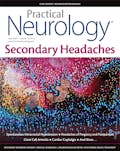 “A randomized double-blind clinical trial evaluating the efficacy of a medicinal cannabis formulation (ZTL-101; Zelira Therapeutics Ltd, Perth, Australia) for treating chronic insomnia showed that the therapy is effective and safe.
“A randomized double-blind clinical trial evaluating the efficacy of a medicinal cannabis formulation (ZTL-101; Zelira Therapeutics Ltd, Perth, Australia) for treating chronic insomnia showed that the therapy is effective and safe.
Participants treated with medicinal cannabis went to sleep faster, slept significantly longer, and went back to sleep sooner after waking. Those participants reported significant improvements in quality of life, including feeling rested after sleep, feeling less stressed and less fatigued, and overall improved functioning.
For the trial, 23 participants were treated with the therapy for 14 nights, and after a 1-week washout period, received a placebo for 14 nights. Each participant took a single dose (.5 ml of 11.5 mg total cannabinoids) or a double dose (1 ml of 23 mg total cannabinoids) of the therapy, delivered sublingually, according to their symptoms.
“The fact that ZTL-101 treatment achieved statistically significant, dose-responsive improvements across a broad range of key insomnia indices is impressive, particularly given the relatively short 2-week dosing window,” said Peter Eastwood, director, Centre for Sleep Science, University of Western Australia.”


 “Marijuana generally refers to the dried mixture of leaves and flowers of the
“Marijuana generally refers to the dried mixture of leaves and flowers of the  “Cannabidiolic acid methyl ester (HU-580) is a more stable compound than cannabidiolic acid (CBDA) which has been shown to be effective in reducing nausea, anxiety, depression behaviors in animal models.
“Cannabidiolic acid methyl ester (HU-580) is a more stable compound than cannabidiolic acid (CBDA) which has been shown to be effective in reducing nausea, anxiety, depression behaviors in animal models. “For persons living with chronic conditions, health-related quality of life (HRQoL) symptoms, such as pain, anxiety, depression, and insomnia, often interact and mutually reinforce one another.
“For persons living with chronic conditions, health-related quality of life (HRQoL) symptoms, such as pain, anxiety, depression, and insomnia, often interact and mutually reinforce one another. “Older adults may benefit from
“Older adults may benefit from  “Aging is an inevitable process that involves changes along life in multiple neurochemical, neuroanatomical, hormonal systems, and many others. In addition, these biological modifications lead to an increase in age-related sickness such as cardiovascular diseases, osteoporosis, neurodegenerative disorders, and sleep disturbances, among others that affect activities of daily life. Demographic projections have demonstrated that aging will increase its worldwide rate in the coming years. The research on chronic diseases of the elderly is important to gain insights into this growing global burden.
“Aging is an inevitable process that involves changes along life in multiple neurochemical, neuroanatomical, hormonal systems, and many others. In addition, these biological modifications lead to an increase in age-related sickness such as cardiovascular diseases, osteoporosis, neurodegenerative disorders, and sleep disturbances, among others that affect activities of daily life. Demographic projections have demonstrated that aging will increase its worldwide rate in the coming years. The research on chronic diseases of the elderly is important to gain insights into this growing global burden.
